Tennis and Padel are not just about physical power or technical skill; they also demand a high level of mental fortitude and strategic thinking. This article delves into psychology’s pivotal role in enhancing players’ performance in these sports.
Table of Contents
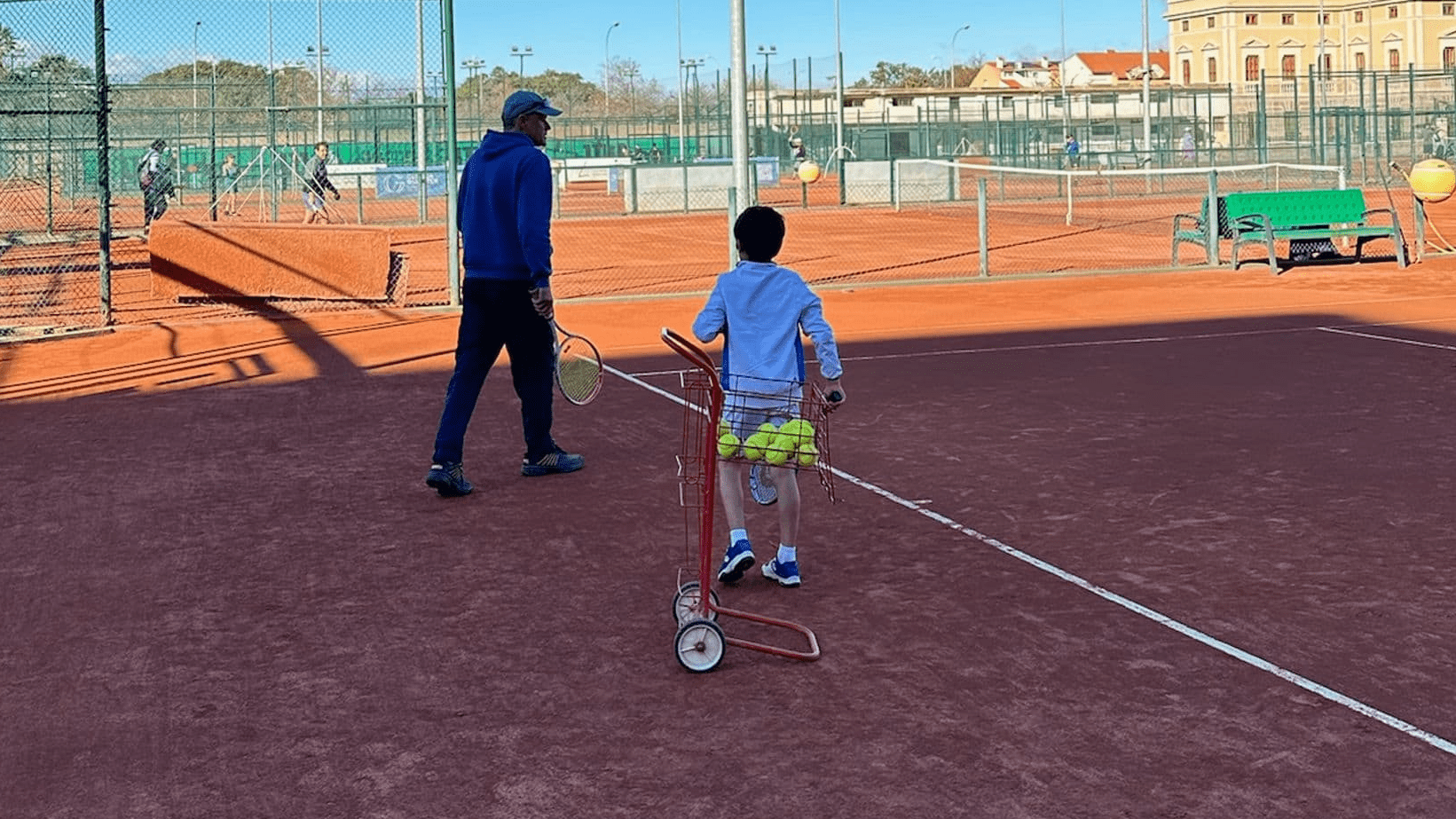
Our main focus in this article is to explore the impact of psychology on the performance of tennis and padel players. We will delve into various aspects, including:
Fundamentals of Sports Psychology.
Critical Mental Aspects in Tennis.
Critical Mental Aspects in Padel.
Applied Psychological Techniques.
Impact of Mental Training on Performance.
Fundamentals of Sports Psychology
The study of how psychological variables affect athletic performance and involvement in sports is known as sports psychology. It covers many subjects, including goal-setting, emotional control, motivation, attention, and confidence. The concepts of sports psychology apply to all sports. Still, they are especially relevant to racquet sports like Tennis and Padel since these activities frequently depend heavily on mental toughness to achieve success.
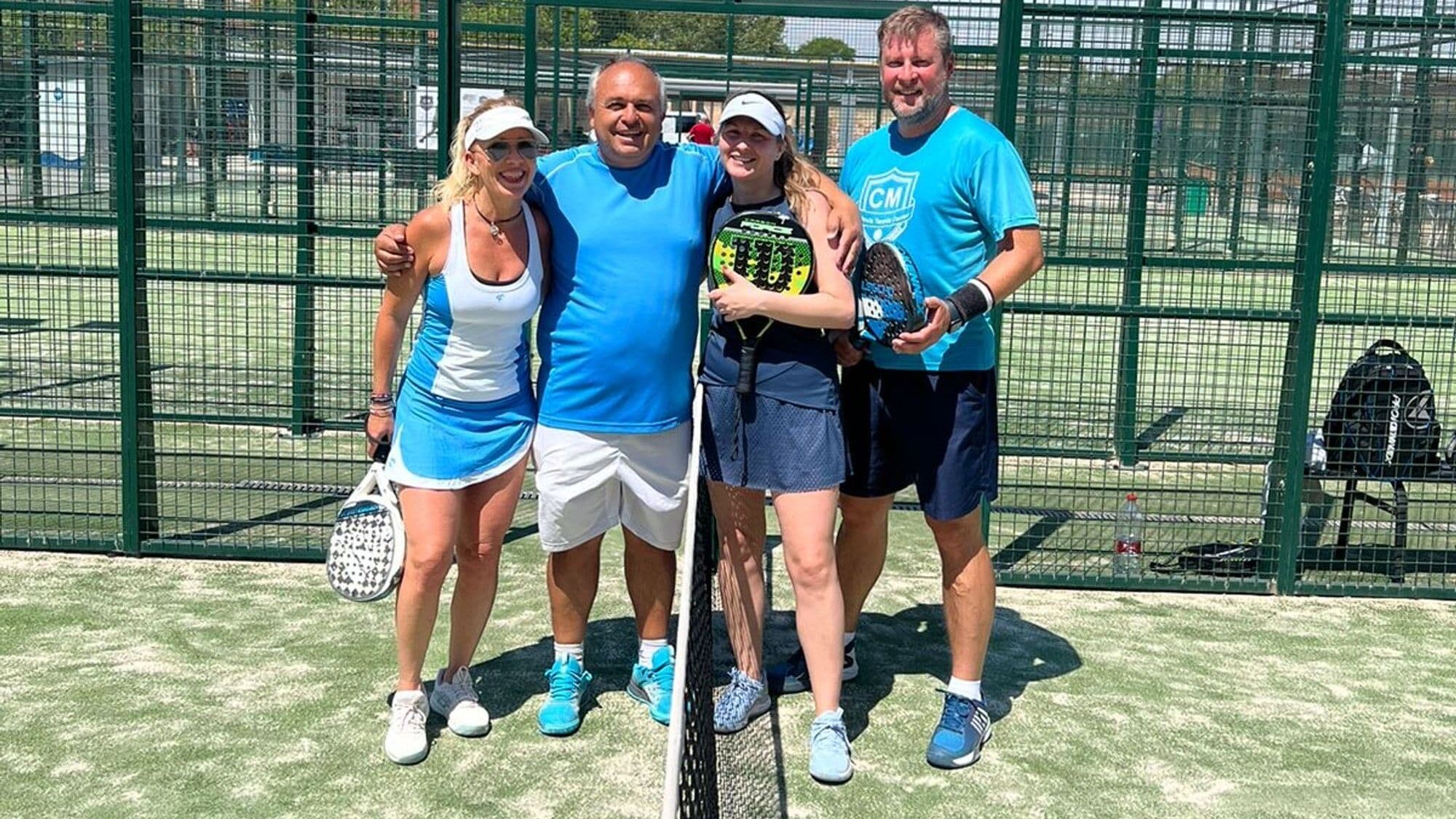
Specific Application to Racquet Sports
Mental Toughness
Tennis and Padel are two racquet sports that require a high level of mental toughness. Players must tolerate long matches, stressful situations, and setbacks like missing shots or losing a set. By using sports psychology, athletes can become more resilient, persistent, and capable of overcoming adversity.
Confidence and Self-Belief
Confidence is essential in racquet sports, where players frequently engage in one-on-one matches, and it can make all the difference. Sports psychologists assist athletes in developing their confidence by using strategies like performance goal-setting, positive self-talk, and visualization. This helps them believe in their skills and provide their best effort when it counts most.
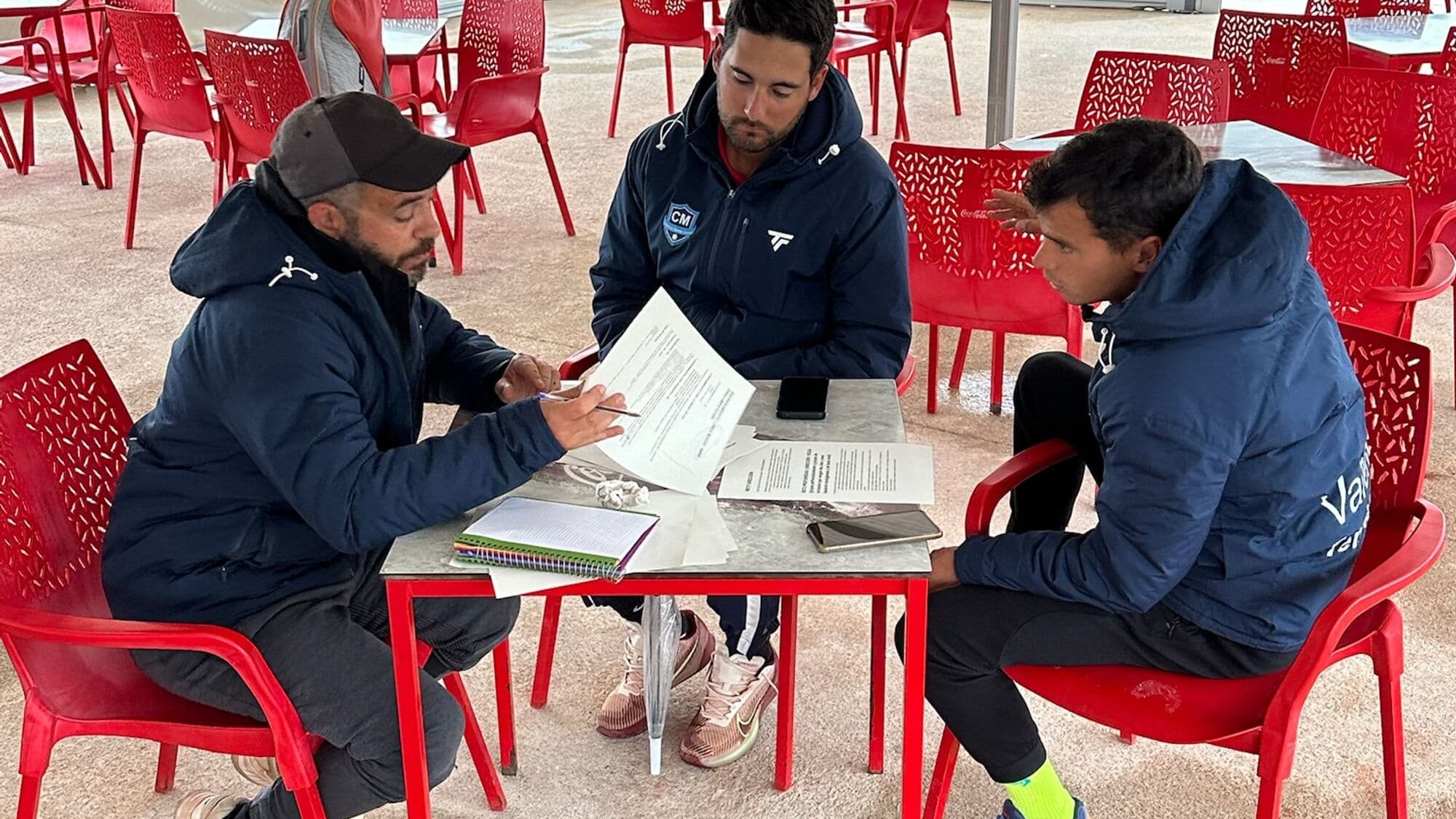
Focus and Consideration
In racquet sports, where decisions can be made in a split second, it is imperative to maintain attention and concentration. Sports psychology provides methods for enhancing focus, such as attentional control exercises, mindfulness practices, and pre-point routines. These help athletes remain present and make the best choices when under duress.
Emotional Regulation
Racquet sports can evoke feelings from delight and excitement to annoyance and worry. Effective emotional management is required to maintain composure and avoid emotions that impair performance. Athletes can learn strategies from sports psychologists to control their emotions and maintain mental equilibrium while competing, including breathing exercises, visualization, and cognitive reframing.
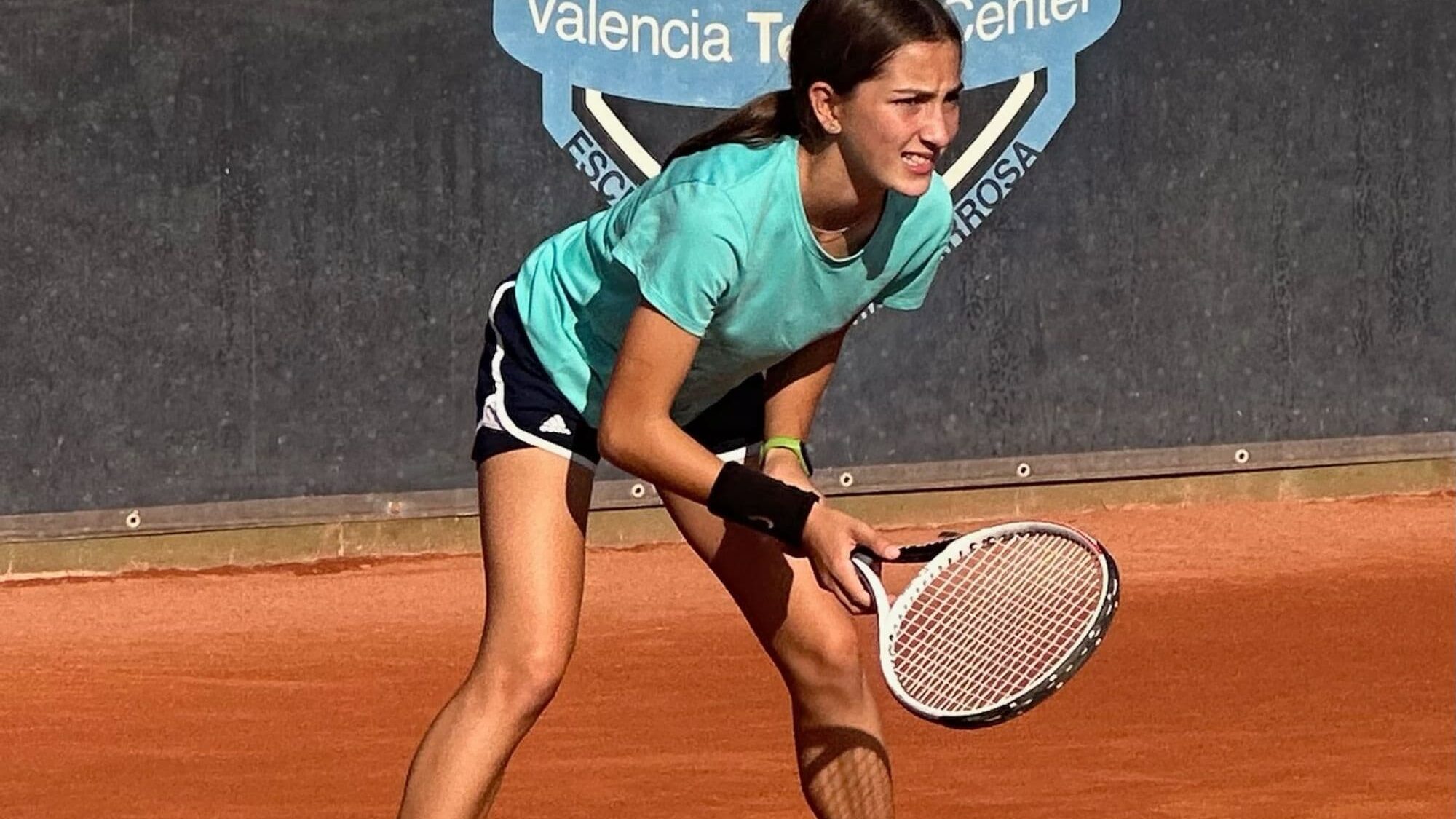
Tactical Awareness
Tactics and strategy are crucial for outwitting rivals and taking advantage of holes in the defense in racquet sports. Sports psychology improves players’ capacity to make decisions, adapt, and understand opponents’ intentions, all of which contribute to developing tactical awareness. Players who comprehend the psychological elements of tactics can predict their opponents’ movements and adapt their strategy accordingly.
Tennis and padel players can improve their mental toughness, self-assurance, attention, emotional regulation, and strategic intelligence by incorporating sports psychology concepts into their practice and competition regimens. This will ultimately improve their overall performance on the court.
Benefits of Sports Psychology
Sports psychology offers many benefits to athletes across all sports, including racquet sports like tennis and Padel. Some of the general benefits:
Enhanced Concentration
Improving focus abilities is one of the main advantages of sports psychology. By learning to stay focused in the face of distractions, athletes can stay completely focused on the present moment during training and competition. Better decision-making, faster reaction times, and increased performance on the court are all correlated with increased focus.
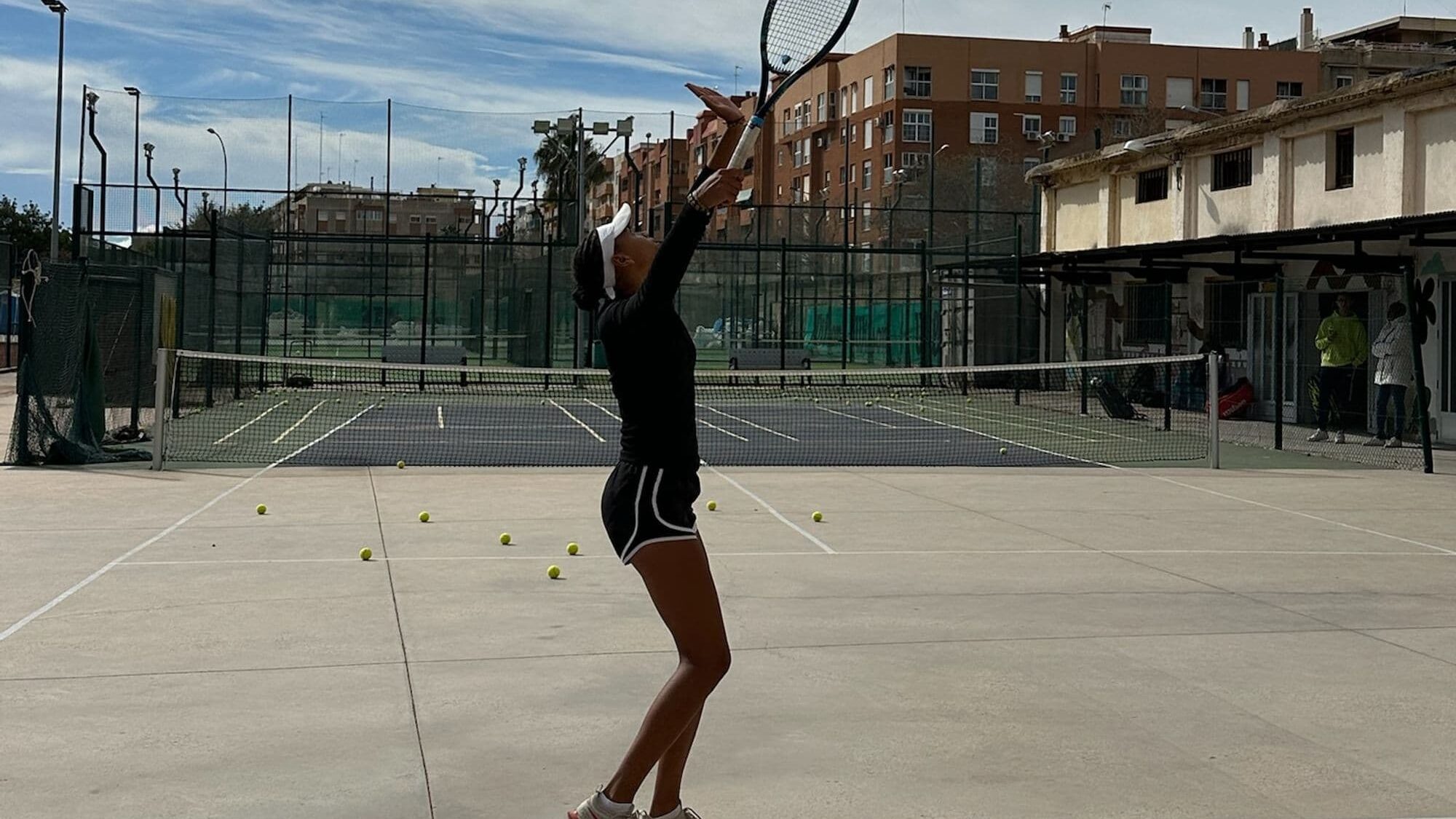
Pressure Management
In competitive sports, athletes frequently find themselves in high-stress scenarios when the result is in the balance. Sports psychology gives players the skills to handle pressure properly, enabling them to remain collected, confident, and serene in high-stress situations. Using breathing exercises, positive self-talk, and visualization, athletes can reduce anxiety and give their best effort when it counts most.
Error Recovery
In sports, mistakes are unavoidable, but how players handle them can have a big impact. Sports psychologists teach athletes the value of resilience and recovering from setbacks. By adopting a growth mindset and viewing setbacks as chances for growth and learning, athletes may quickly bounce back from mistakes and keep their confidence and momentum throughout a game.
Enhanced Performance Consistency
Sports psychology is crucial for players seeking to succeed in sports, as consistency is essential. By tackling mental obstacles like negative thought patterns, self-doubt, and fear of failing, athletes can build the psychological resilience required to compete at their best every time. Over time, as athletes gain more resilience to the highs and lows of competition, their consistency yields better outcomes.
Improved Mental Well-Being
Sports psychology not only improves performance but also fosters general mental health. Athletes gain important life skills that they can use in their personal and professional lives outside of athletics, such as goal-setting, stress management, and self-awareness. By developing a good mentality and a positive relationship with their sport, athletes can experience more happiness and fulfillment on and off the court.
Numerous advantages are provided by sports psychology, such as better mental health, higher performance consistency, improved error recovery, pressure management, and increased attention. Athletes can realize their full potential and compete at the top of their game by incorporating these ideas into their practice and competitive regimens.
Critical Mental Aspects in Tennis
Handling Pressure in Key Matches
Tennis is a game where crucial moments frequently occur, particularly in important matches like finals or pivotal sets. Effective pressure management in these situations can mean victory and failure. Here, we look at a few psychological strategies for managing stress in these kinds of dire circumstances:
Pre-Point Routine
Players can maintain attention and composure under duress by developing a pre-point ritual. This practice could include rituals like deep breathing, envisioning achievement, bouncing the ball several times, and repeating encouraging self-talk. By faithfully adhering to their routines, players can establish a sense of comfort and relaxation even in high-pressure situations.
Controlled Breathing
During stressful situations on the court, deep breathing techniques can be useful for lowering anxiety and soothing the mind. Diaphragmatic breathing is a technique that players can practice. It involves taking a deep breath via their nose, holding it for a minute, and gently releasing it through their mouth. This lowers heart rate and promotes relaxation, which enables players to stay focused and clear-headed under duress.
Visualization
Visualization involves mentally practicing favorable results and situations before they happen. Gamers can see themselves making perfect shots, overcoming obstacles, and winning sets or important points. By continuously picturing success, players can increase their self-assurance and belief in their skills. This will strengthen their resilience and mental toughness in high-pressure scenarios.
Positive Self-Talk
Players’ mental dialogue greatly influences how well they perform under duress. Encouragement and affirmative self-talk can increase self-assurance and self-belief, which will assist athletes remain resilient and concentrated in high-pressure situations. Players can reinforce positive affirmations and remind them of their talents and capabilities rather than focusing on mistakes they might make or bad outcomes.
Embracing the Challenge
Players can reframe pressure as a chance to demonstrate their abilities and mental resilience rather than as a threat. By rising to the challenge of high-pressure circumstances, players may change their perspective from dread to exhilaration, which will help them perform at their peak when the stakes are highest. Players can succeed in pivotal situations if they believe in their preparation and accept pressure as an inevitable aspect of competitiveness.
Focus on Process, Not Outcome
Finally, players can reduce pressure by concentrating on the process of playing each point as well as the final result of the match. No matter the score or circumstance, players may keep a clear and collected head by being in the moment and focusing on their strategy, technique, and tactics. This keeps them from succumbing to outside pressure and enables them to work with assurance and resolve.
In important matches, pressure management requires a blend of mental toughness and psychological strategies. Tennis players can improve their performance under pressure by using pre-point rituals, controlled breathing, visualization, positive self-talk, accepting the challenge, and process-focused thinking.
Mental Endurance During Long Matches
Psychological Preparation
Players need to develop mental toughness even before they are on the floor. The first step is mental preparation, including goal-setting, visualization, and pre-match rituals. Players can develop the mental toughness required to overcome obstacles by imagining themselves persevering through protracted matches and maintaining mental strength the entire time.
Focus on the Present
Players must focus on the game during extended periods, avoiding getting ahead of themselves or thinking back on previous plays. By keeping a laser-like focus on each point as it occurs, participants can preserve mental energy and prevent feeling overpowered by the size of the match or the amount of time left in the competition.
Positive Self-Talk
Positive self-talk is essential for preserving mental stamina during extended games. When athletes give themselves words of support and encouragement, they can maintain their resilience and motivation in the face of exhaustion or hardship. Remembering their experience, skills, and prior victories might help players stay psychologically tough and boost their confidence during the game.
Managing Emotions
During lengthy bouts, emotions can get intense, especially when the pressure increases and exhaustion sets in. Whether happy after a hard-fought point or frustrated after a squandered opportunity, athletes must learn to identify and control their emotions. Through emotional equilibrium and composure, athletes can prevent mental exhaustion, sustain their attention, and resolve to the very end.
Adapting Strategies
Players frequently have to modify their techniques and tactics throughout extended bouts as the game goes on. Players who possess this adaptability must be mentally flexible and possess problem-solving abilities, as they must constantly evaluate their opponents’ advantages and disadvantages and modify their strategy accordingly. Throughout the game, players can maintain their resilience and competitiveness by maintaining mental agility and being receptive to change.
Physical Conditioning
There is a close relationship between mental toughness and physical health. Physically fit players can better withstand the demands of extended games and keep their composure and mental clarity even as exhaustion sets in. By implementing intense training plans incorporating aerobic exercises, strength training, and endurance exercises, athletes can develop the physical endurance required to maintain their performance for prolonged periods.
Mental endurance during extended tennis matches results from psychological preparation, present-focused attention, positive self-talk, mood regulation, strategic flexibility, and physical conditioning. Tennis players can develop the mental toughness required to succeed in drawn-out and difficult matches by fostering these qualities and incorporating them into their practice and competitive regimens.
Critical Mental Aspects in Padel
Team Dynamics and Communication
In Padel, a doubles sport that requires seamless coordination between teammates, effective communication and cohesive teamwork are essential for success on the court. Here’s an analysis of how psychology helps to improve communication and cohesion within a padel team:
Establishing Trust and Rapport
Establishing rapport and trust among colleagues is a fundamental aspect of psychology that contributes to good communication and teamwork development. Sports psychologists collaborate with padel players to promote respectful relationships, open lines of communication, and constructive connections. On the court, teammates may collaborate more successfully and speak more honestly when they trust one another’s skills and intentions.
Clear Communication
In Padel, where judgments can be made in a split second, it is imperative to communicate intelligibly and succinctly. Sports psychologists work with athletes to improve their communication abilities, teaching them how to get their points over quickly and effectively during intense rallies. This entails delivering prompt feedback, speaking clearly and precisely, and giving instructions without creating misunderstandings or conflicts.
Role Clarity and Coordination
Each member of a padel team has defined tasks and responsibilities on the court to facilitate efficient coordination and teamwork. By using sports psychology, colleagues can better grasp their skills, shortcomings, and how they fit into the team’s larger plan. Teams can improve performance and coordinate actions by defining roles and knowing each player’s duties.
Conflict Resolution
Any team sport will inevitably involve conflict, but how the team handles it will decide whether it succeeds or fails. Sports psychologists teach Padel players to conflict resolution skills, such as compromise, perspective-taking, and active listening, to help them amicably settle arguments and preserve team unity. By resolving disagreements amicably and quickly, teams may keep stress low and preserve a supportive environment.
Unity in Diversity
Padel teams frequently have players with various personalities, communication methods, and playing philosophies. Teams can embrace this diversity and use it to their advantage rather than as a liability with the aid of sports psychology. Colleagues can improve their cohesiveness and flexibility on the court and perform at their best despite individual differences by valuing one another’s special talents and identifying areas of agreement.
Collective Goal Settings
Establishing shared objectives is crucial for coordinating team members’ endeavors and cultivating a feeling of cohesion and direction. Sports psychologists facilitate the goal-setting process and assist padel teams in creating goals that inspire and encourage team members to collaborate toward a common goal. By uniting behind shared objectives, teams can improve their cohesiveness, resiliency, and on-court performance.
Psychology is critical in enhancing communication and cohesion among Padel teams by building rapport and trust, encouraging clear communication, defining responsibilities and coordinating, resolving disagreements, embracing diversity, and identifying shared goals. By incorporating these psychological concepts into their team dynamics, Padel players can improve their teamwork, cohesion, and performance on the court.
Adaptability and Strategic Flexibility
Analyzing Opponents
Studying psychology can help padel players gain a deep insight into their opponents’ strengths, weaknesses, and playing styles. By observing and analyzing their opponents, players can spot behavioral patterns, such as preferred shots, movement patterns, and strategic tendencies. With this psychological insight, players may predict their opponents’ actions and modify their strategy accordingly.
Mental Flexibility
Adjusting mentally is essential for handling various playing scenarios and styles on the court. Padel players can improve their cognitive flexibility—the capacity to quickly transition between several tactics and approaches—by working with sports psychologists. Players who develop an open-minded and flexible mindset can better adjust to changes in the game’s dynamics and strategically counteract the methods of their rivals.
Embracing Uncertainty
Like any sport, Padel is naturally unexpected, so players need to develop an attitude of adaptation and uncertainty. Sports psychologists work with athletes to help them become more open to trying novel approaches and tactics on the court and tolerating uncertainty. Regardless of their difficulties, players may approach every game with confidence and resiliency by redefining uncertainty as a chance for development and learning.
Adjusting Tactics Mid-Match
Padel players frequently have to quickly modify their tactics during a match in response to changes in the game’s circumstances and their opponents’ performance. Through sports psychology, athletes can maintain mental flexibility and reactivity, which helps them spot gaps in their opponents’ strategies and take advantage of them. Players who retain composure under duress can quickly make tactical adjustments and control the game.
Managing Emotions
Emotions can affect performance and decision-making on the court, particularly in intense and competitive matches. Sports psychologists assist padel players in acquiring emotional control techniques that enable them to maintain composure and concentration under duress. Players adept at controlling their emotions can better make thoughtful decisions and modify their tactics strategically rather than responding rashly or irrationally to obstacles.
Learning from Experience
In Padel, experience is a great teacher, and participants can gain knowledge from every match they participate in. Sports psychologists advise athletes to evaluate their triumphant and unsuccessful performances and draw important conclusions to guide their future tactics. Players may continually hone their adaptability and strategic flexibility on the court by adopting a growth mindset and seeing every game as an opportunity for learning and improvement.
Padel players can respond to various opponents’ play styles and mental states by using psychology to understand their opponents better, cultivate mental flexibility, accept uncertainty, modify their strategies mid-match, control their emotions, and gain experience. Incorporating these psychological concepts into their game can increase their adaptability and strategic flexibility, ultimately improving their success and effectiveness on the court.
Applied Psychological Techniques
Visualization and Mental Preparation
Padel players use visualization and mental preparation techniques to optimize their performance:
- Pre-match visualization helps players mentally rehearse their game plan and build confidence.
- Goal setting provides purpose and motivation, driving players to excel.
- Positive affirmations and self-talk boost confidence and resilience.
- Pre-match routines establish consistency and readiness for play.
- Focus and concentration techniques keep players sharp and attentive.
- The post-point analysis allows players to adapt and refine their strategies during the match.
These applied psychological techniques empower padel players to perform at their best and succeed on the court.
Emotional Control
Effective emotional control is crucial for Padel to maintain optimal performance on the court. Here are strategies for managing emotions such as anger, frustration, and euphoria:
Breathing techniques
Deep breathing helps [layers calm their nervous system. When experiencing anger or frustration, players can take a few deep breaths, inhaling through the nose and exhaling through the mouth, to regain composure and clear their minds.
Positive Self-Talk
Replacing negative thoughts with positive affirmations can help players stay focused and resilient. For example, after a mistake, instead of thinking, “I always mess up,” players can remind themselves, “I can recover and play better on the next point.”
Mindfulness and Focus
Practicing mindfulness helps players stay present and focused on the current point rather than dwelling on past errors or future outcomes. Techniques such as focusing on their movements’ sensations or the racquet’s feel can anchor them in the moment.
Routine and Rituals
Establishing pre-point routines, like bouncing the ball several times or wiping their face with a towel, can provide control and consistency, helping players manage their emotions and stay centered.
Visualization
Visualizing successful shots and positive outcomes can help players manage their emotions by instilling confidence and reducing anxiety. This mental rehearsal prepares players to handle various emotional states during the game.
Emotion Regulation Techniques
Recognizing and naming emotions as they arise can help players manage them effectively. Acknowledging feelings of frustration allows players to address and release those emotions rather than letting them build up.
Physical Release
Engaging in a quick physical activity, such as jumping in place or sprinting, can help dissipate negative emotions like anger and frustration, allowing players to reset mentally.
Positive Reinforcement
Celebrating small successes and maintaining a positive attitude, even in challenging situations, can keep players motivated and emotionally balanced. Encouraging oneself after a good play reinforces positive emotional states.
Support System
Players can better control their emotions by seeking perspective and encouragement from a coach or spouse. An encouraging atmosphere may reassure players and keep them grounded.
Learning and Adaptation
Rethinking errors as teaching moments rather than setbacks encourages athletes to keep a growth mentality. This viewpoint encourages constant progress and lessens dissatisfaction.
Using these tactics, padel players may efficiently control their emotions, including euphoria, rage, and frustration. This will help them stay focused and composed and give their best on the court.
Impact of Mental Training on Performance
Case Studies of Successful Players
Padel Players
Juan Lebrón – is one of the top padel players globally.
Mental training techniques:
- Visualization: Lebrón uses visualization to rehearse matches and mentally reinforce positive outcomes.
- Focus and Concentration: He employs mindfulness techniques to stay calm and composed during high-pressure points.
Results:
Lebrón’s mental preparation has significantly contributed to his consistent performance and ability to handle pressure, leading to numerous tournament victories and a top ranking in the World Padel Tour.
Alejandra Salazar is known for her mental toughness and strategic play.
Mental Training Techniques:
- Positive Self-Talk: Salazar uses positive affirmations to boost her confidence.
- Pre-Match Routines: She follows specific rituals to reach the right mental state before matches.
Results:
Salazar’s mental training has helped her overcome setbacks and maintain her status as one of the top female players in Padel.
Rafael Nadal – one of the greatest tennis players, is known for his mental resilience and competitive spirit.
Mental Training Techniques:
- Rituals and Routines: Nadal’s meticulous pre-serve rituals help him stay focused and calm.
- Positive Self-Talk: He uses positive affirmations and maintains a positive attitude, even in difficult situations.
Results:
Nadal’s mental fortitude has contributed to his ability to perform under pressure, recover from injuries, and win numerous Grand Slam titles.
Serena Williams – is renowned for her dominance in women’s tennis and mental strength.
Mental Training Techniques:
- Visualization: Williams uses visualization to prepare for matches and foresee success.
- Emotional Control: Serena practices techniques to manage her emotions and maintain focus during high-stress moments.
Results:
William’s mental training has been crucial to her consistent high-level performance, which has led to her record-breaking career and multiple Grand Slam victories.
These case studies demonstrate the significant effect that mental training has on Padel and tennis players’ performance. Using strategies like visualization, constructive self-talk, emotional regulation, adaptation, and attention, these athletes may improve their resilience, stay focused, and perform under duress. By including mental training in their practices, players can reach the pinnacles of their sport and realize their full potential.
Specific Mental Training Programs
Professional Padel and tennis players frequently employ regimented mental training regimens to improve their game. These programs are incorporated into their total training regimens to guarantee that students reach their ideal physical and mental states. Here is an overview of some professional mental training programs and how they are included in their training:
The Inner Game Program
Developed by Tim Gallwey
Various athletes, including tennis players, use them.
Key Components:
- Focus on Process Over Outcome: This approach emphasizes staying in the present moment and focusing on the process of playing rather than the outcome.
- Quieting the Mind: Techniques to reduce internal distractions and negative self-talk.
- Trust in Self: Building self-confidence and trust in one’s abilities through positive reinforcement.
Integrating into Training:
- Daily Practice: Players incorporate these techniques into daily practice sessions, focusing on process-oriented goals.
- Match Simulations: During practice matches, players practice staying present and managing their internal dialogue.
- Reflection: Post-training reflection sessions will be held to assess how well they maintained focus and to reinforce positive outcomes.
Mindfulness-Based Stress Reduction (MBSR).
Developed by: Jon Kabat-Zinn.
Used by Novak Djokovic, among others.
Key Components:
- Mindfulness Meditation: Regular meditation practices to enhance focus and reduce stress.
- Body Scan Exercises: Techniques to increase body awareness and reduce tension.
- Mindful Breathing: Breathing exercises to maintain calm and focus under pressure.
Integration into Training:
- Morning Routine: Starting the day with mindfulness meditation and breathing exercises.
- Pre-Match Preparation: Using body scans and mindful breathing to stay calm and focused before matches.
- In-Match application: Applying mindfulness techniques to stay present and manage emotions during play.
Cognitive Behavioral Therapy (CBT).
Many top players, including Serena Williams, use them.
Key Components:
- Identifying Negative Thought Patterns: Recognizing and challenging negative thoughts that impact performance.
- Behavioral Strategies: Develop strategies to replace negative behaviors with positive actions.
- Goal Setting: setting achievable and realistic goals to maintain motivation and focus.
Integration and Training:
- Mental Coaching Sessions: Regular sessions with a sports psychologist to work on identifying and changing negative thought patterns.
- Goal-Oriented Practice: Incorporating goal setting into daily practice, focusing on short-term and long-term objectives.
- Performance Reviews: Post-match reviews to discuss what mental strategies worked and what needs improvement.
Sports psychology is still developing, providing players with fresh perspectives and advantageous methods. In the future, the main focus should be individualized strategies catering to each person’s requirements and preferences. Programs for mental training can be improved even further by using technological elements like virtual reality and biofeedback. Furthermore, creating a welcoming, all-encompassing setting that considers the game’s mental and physical demands is critical. Athletes can reach their greatest potential and improve their on-court performance by prioritizing psychological training and mental health.